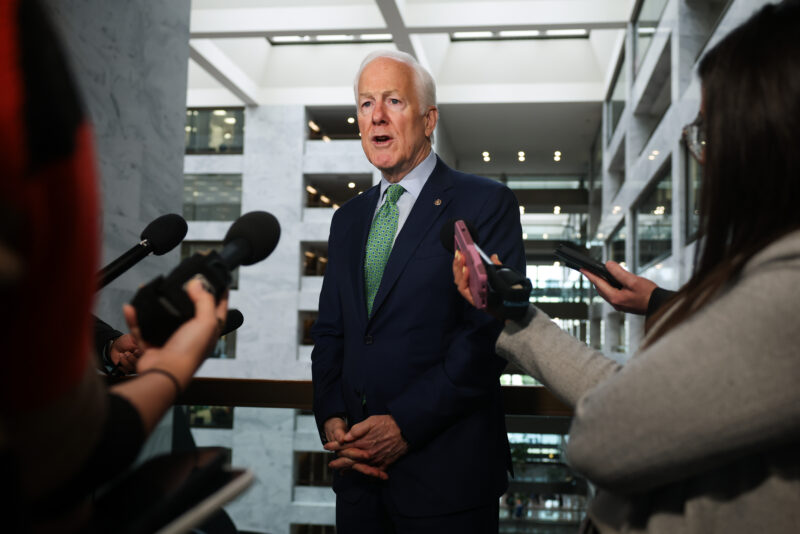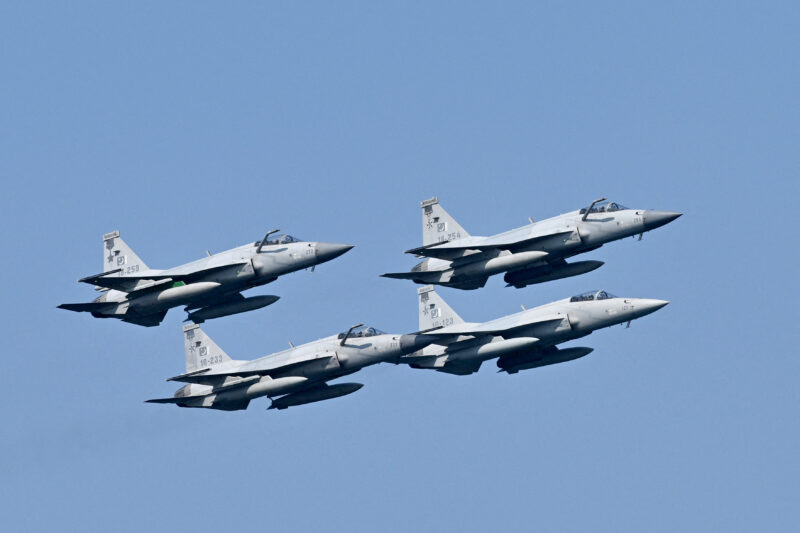FAA failing to respond to Rep. Molinaro’s inquiry over suspension of flights to Israel
Rep. Marc Molinaro said he hasn’t heard from the agency about its communications with private airlines over why they’ve stopped traveling to the Jewish state

Tayfun Coskun/Anadolu via Getty Images
An American Airlines plane lands at San Francisco International Airport (SFO) in San Francisco, California, United States on August 31, 2024.
The Federal Aviation Administration has yet to respond to Rep. Marc Molinaro’s (R-NY) inquiry about what guidance it has given to U.S. airlines amid their ongoing suspension of flights to Israel, he told Jewish Insider.
Molinaro, a member of the House Transportation and Infrastructure Committee, gave FAA Administrator Michael Whitaker until Sept. 6 to respond to his questions about whether the agency had in any way instructed or encouraged U.S. airlines to suspend flights to the Jewish state, either temporarily or indefinitely. Molinaro said he has yet to hear back.
“With no answers and Jewish travelers left in limbo, there’s a growing perception that the FAA and DOT are getting involved in anti-Israel politics. They fear this is a boycott,” Molinaro told JI in a statement.
An FAA spokesperson told JI that the agency would “respond directly” to the congressman.
Molinaro wrote a letter to Whitaker last month asking for the agency to provide its official and unofficial communications with the airlines and the International Civil Aviation Organization “in the past two months.” Molinaro also asked how the agency worked “to ensure that political matters do not influence the decision-making process of the FAA.”
“I have hundreds of constituents who had booked flights to Tel Aviv that are now canceled by the air carriers, with no timeline for resuming. As you can imagine, this is incredibly frustrating to Americans who expect the airline industry to work in a predictable and fair manner. Especially since non-U.S. airlines are continuing to fly into Israel without issue,” Molinaro wrote, adding that “Ben Gurion Airport in Tel Aviv, Israel is considered one of the safest airports in the world.”
“The FAA sends urgent warnings and notices through the Notice to Air Missions (NOTAM) system and restrictions through Special Federal Aviation Regulations (SFAR). The last time the FAA issued a warning about Israeli airspace was in October 2023, when Hamas launched the deadly and horrific attack on Israel,” he added. “There has been no NOTAM warning or SFAR related to flights into Israel since then. Despite this, U.S. based airlines have suspended all flights from the United States into Israel. This creates several questions as I try to understand why these flights are indefinitely suspended.”
The memo was sent two days after Rep. Ritchie Torres (D-NY) sent a letter to the CEOs of American Airlines, Delta Airlines and United Airlines urging them to reconsider their prolonged flight suspensions “in order to prevent the appearance and the substance of discrimination against the Jewish State.”
None of the three airlines issued “an official response” to Torres’ letter, but the New York congressman’s staff says they’ve been in contact with the government affairs team for each.
A source familiar with what airlines are telling Congress informed JI that airline representatives indicated that there is “an overall staff concern, top-down,” but did not elaborate further.
Torres’ letter came just over a week after American Airlines announced that it would extend its suspension of flights to Israel through April 2025, prompting concern from Torres that such decisions were being made without FAA guidance that such flights are unsafe.
News of American Airlines’ suspension until 2025 followed Delta’s recent announcement that it will not fly to Israel until Sept. 30 of this year, months after revealing since-scuttled plans to resume flights from New York’s JFK Airport to Tel Aviv in June. With United Airlines having suspended flights to Israel indefinitely after briefly resuming limited service in March, American fliers have been left with El Al as their only option to travel directly from the U.S. to the Jewish state.
U.S. airlines further suspended flights after Iran launched an attack on Israel in April, firing hundreds of missiles that were almost entirely intercepted by Israeli and regional air defense systems. More recently, Iran has been threatening retaliation against Israel for the assassination of Ismail Haniyeh, Hamas’ political leader, in Tehran in late July.


















































































